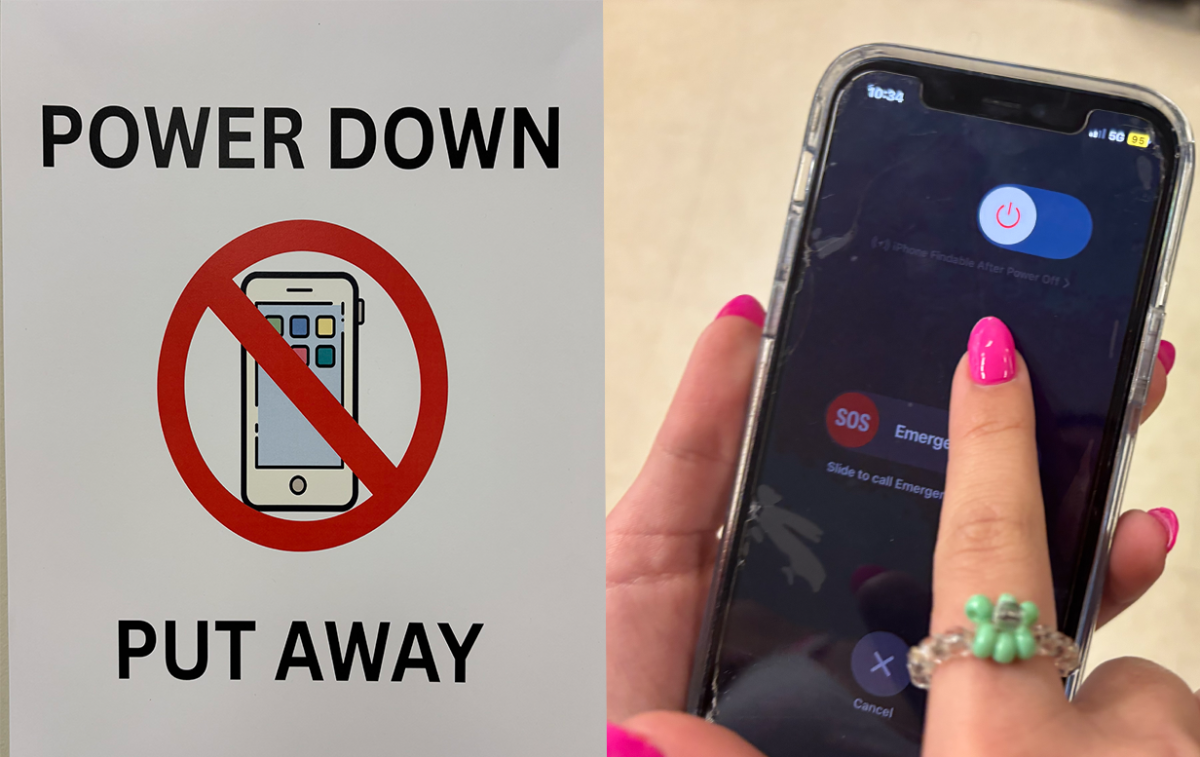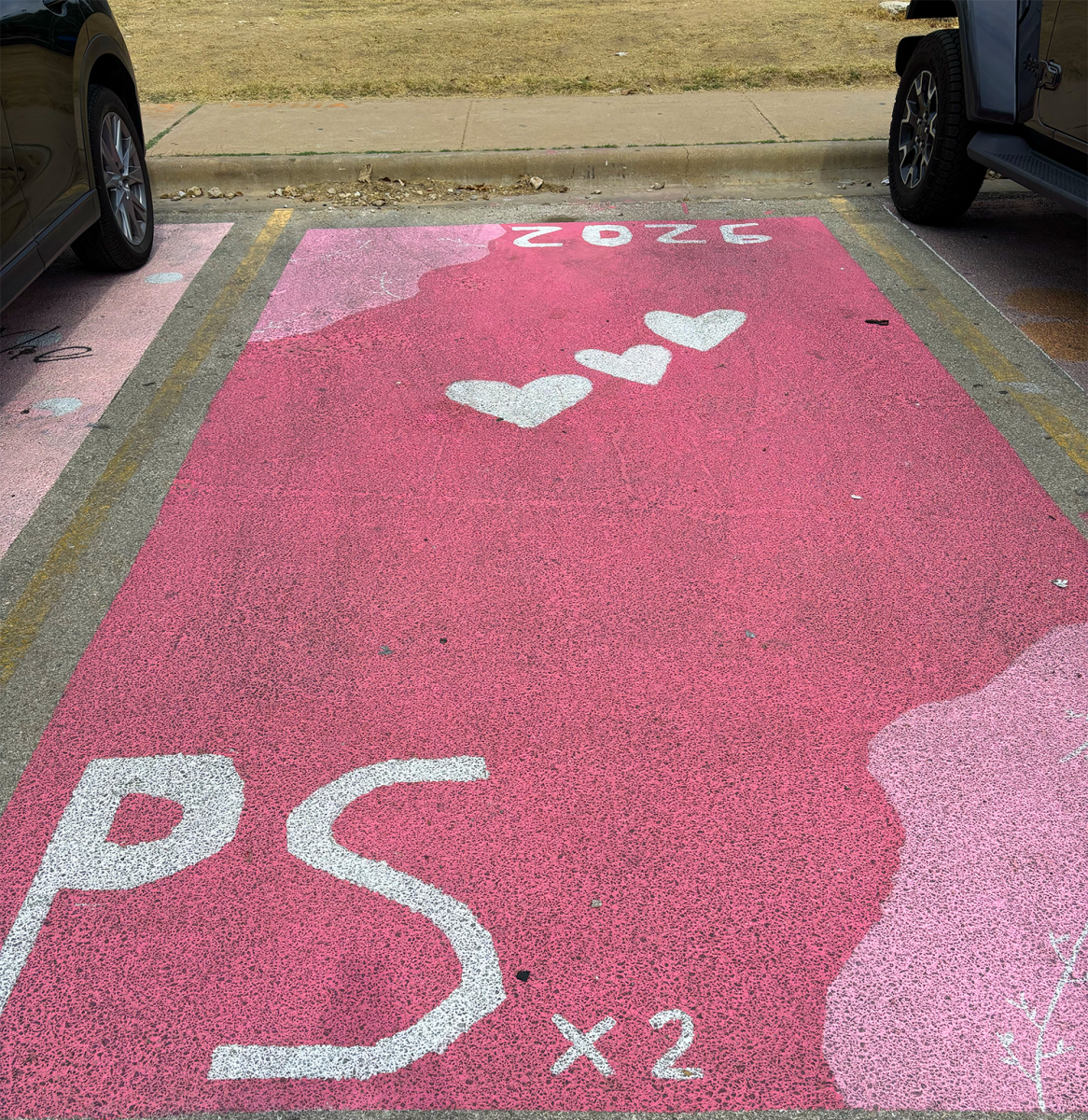“Power down and put away.” Shiny new plastic signage is pasted in every hallway of the Austin High School campus. The small paper posters feature an image of a cellphone with an X over it: a perpetual reminder of the novel school environment this year. New legislation has passed that makes the 2025-2026 school year the first year students are faced with hard consequences of being caught with any kind of personal devices- from apple watches to macbooks to pagers. In a generation where many teenagers greatly rely on their phones for communication and social networks, this new rule has drastically changed the landscape of high school for many. This change has upset some students, causing frustration and outrage against the dictation of their property. Others have not noticed much of a difference, agreeing that the absence of personal devices does not detract from the educational experience, but rather the law reinforces an engaging learning environment.
Texas House Bill 1481 passed a law requiring all Texas schools to put rules into places banning the use of personal devices. This law took effect on June 20th of this year, and required schools to solidify their actions by September 18th. At schools, there is no device usage permitted during instructional periods of time. If a student is caught using a device during passing periods or lunch, they may face disciplinary consequences or have their device confiscated.
At Austin High, this means constant reminders from teachers, principles, and administrators to “power down” and keep their phones out of sight and unused. From the 9:05 to 4:35 school bells, personal devices should not be used on campus. Users of these devices initially face stern reminders during this transition period. However, repeat breaches of the rules lead to confiscation, with cellphones held in the office for later pick-up. According to the state law, if many repeat offenses occur, there may be even more severe consequences, including multi-day suspension from school. Austin High administrators are hopeful that such ramifications will not have to occur.
Many students felt blindsided over this quick change in policy. The law was passed over the summer, and a relatively severe change in rules was set up while students remained oblivious until they entered school for the first time. This could pose a problem for those that had purchased expensive laptop devices for school use purposes, and then found that their investment had been a waste of money when forced to use less technologically advanced chromebooks regardless.
Other students have voiced complaints regarding the blocking of websites and platforms on school issued devices, which could inhibit educational performance. On the chromebooks, there is no option to sign into personal accounts or emails, which makes sharing content between school accounts and personal accounts overly difficult. When a student has a need for resources such as portfolios, resumes, and other essays outside of school, especially for college application purposes, this could pose an issue. Senior student Ace Howell elaborates on this, saying that when “writing common application essays on a school account, the general access is restricted,” making it an issue for students wanting to work on college applications during school and transfer progress to a personal account. Ace continues on, mentioning that there are times in the classroom when phones can be used as a tool, rather than a distraction.
While having some potential flaws, the overall intentions behind the law were virtuous. According to assistant principal Ms. Johnson, the law was created by the state in order to protect students. Around 30% of people experience cyber bullying in their teenage years according to the Cyberbullying Research center. The use of digital and social media apps can have negative effects on the mental health of young people, and one of the intentions behind the law was to mitigate these implications by limiting time spent on social media apps during school hours. Ultimately, Johnson comments that an intention that was behind this piece of legislation was to put the “focus on academics” while on Texas school campuses. There are many conflicting opinions on whether this law was effective in improving the lives of students in its application.
What does this mean for the future of high school students? The State law prohibiting devices will continue in its current state for the next two years. Taking this into account, it is a good idea for students to adapt to these new rules, and learn to be comfortable with unmodernized school issued chromebooks. After this period has commenced, the state will re-evaluate, and assert once again what they think is best for students across the state.















